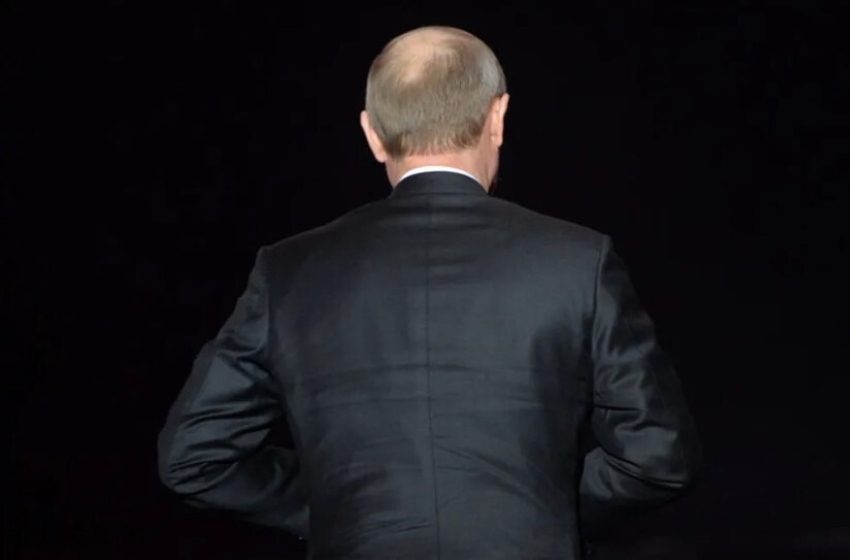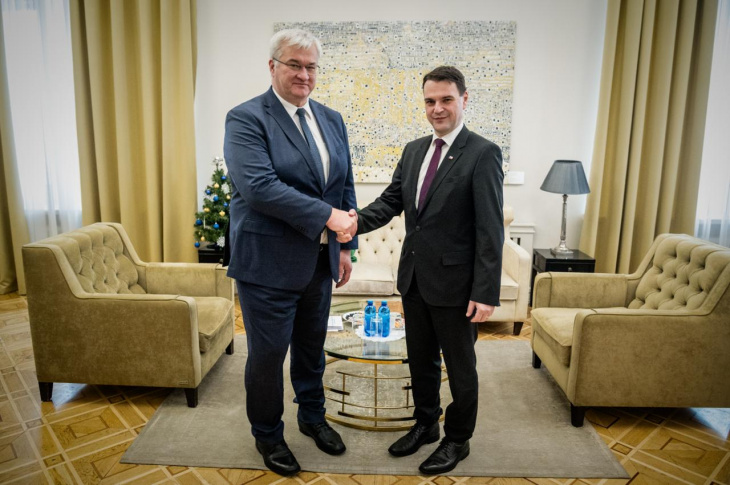By Vladislav Inozemtsev for The Moscow Times
After a brief period of renewed hopes for a “breakthrough” in resolving the Ukrainian conflict and discussions about how Vladimir Putin might reach his desired Budapest, it became clear that the Kremlin’s charm is visiting U.S. President Donald Trump less and less frequently and is becoming increasingly unstable. The “Tomahawks” so irritating to Moscow were not delivered to Ukrainian President Volodymyr Zelenskyy, the tone of his meetings in Washington was not particularly promising, but the overall outcome of the October 16 phone call was the first sanctions against Russia under the current administration and increased U.S. pressure on China, whose leader Trump is scheduled to meet in the coming days. Kirill Dmitriev, a solid man urgently sent to Washington (the daughter’s boyfriend), was met there with frank skepticism, receiving mockery and irritated comments.
The situation
On one hand, we have Donald Trump—with his approach to peace as a primary basis for any cooperation. This approach, it must be acknowledged, is neither a game nor a tactic to confuse partners: it is entirely sincere, stemming from the character of the American president as a businessman. Trump believes that people are made for business, not for senselessly killing one another; that is why he constantly cites how many soldiers die in Ukraine each day or how many lives his peace efforts supposedly save in other regions of the world.
It was naïve to think that the American leader could be “bought” with promises of rare earth mining in Russia or digging a pointless hole under the Bering Strait. Both matters may be discussed in the future, but only after a ceasefire is established.
On the other hand, we have Vladimir Putin, insisting on the “eradication of the root causes of the conflict” and hoping for further military successes—despite most analysts saying that conquering Ukraine would take decades. To lend extra weight to its demands, the Kremlin continues to frighten Europe with drones and the world with new types of nuclear weapons, while simultaneously preparing the ground for an expansion of hidden mobilization of reservists alongside a minor, formal cut to the military budget.
Meanwhile, the main obstacle remains Putin’s own logic regarding the “root causes of the conflict” and the need to eliminate them.
Back to the future
Any dialogue—between intellectuals, businessmen, or politicians—is only possible when the parties either share some understanding of common principles or can reach a relative agreement on them, each stepping slightly away from their own position. In this case, that seems fundamentally impossible, as the Kremlin’s demands demonstrate: it does not treat basic elements of international law as indisputable. Therefore, even if at first glance the conflict may be interpreted as starting between Russia and the West, in reality it represents a confrontation between Moscow and the rest of the world.
Among the notorious “root causes” (even without mentioning NATO’s approach to Russian borders), Putin and his inner circle include: “the state coup in Ukraine, provoked by the West, which removed the political leadership that did not support the country’s NATO membership”; the West’s ongoing attempts to militarize Ukraine and involve it in military alliances and blocs; “Kyiv’s violation of the Minsk agreements,” and much more.
The Kremlin demands “protection of the interests of our people in those territories <…> where people consider Russian their native language and consider Russia their homeland.” All this indicates that the issue of occupied territories, front-line borders, security guarantees for Kyiv, and much of what Ukrainian and Western leaders are willing to discuss in one way or another cannot, in principle, provide the kind of conflict resolution Moscow would accept.
Two circumstances are immediately apparent.
On one hand, the Kremlin appeals to events and decisions that have long since become irreversible. The outcome of the 2014 “Revolution of Dignity” was the flight of Viktor Yanukovych and the presidential elections in Ukraine, which legitimately brought Petro Poroshenko to power. Vladimir Zelenskyy’s victory in the subsequent elections established a line of succession that cannot be revisited.
Even if one continues to consider the 2014 “coup” illegitimate, the government of any other country could at most refuse to recognize the new authorities, but could not demand their replacement. The issue of the “Minsk agreements” today also seems irrelevant: firstly, because Russia, strictly speaking, was never a party to them or even an official guarantor, and therefore cannot justify its demands and actions by the deeds of third countries; secondly, even from the Kremlin’s perspective, the “republics” of Donbas were first recognized by Russia as independent states and then incorporated into the Russian Federation, so any special status within Ukraine is no longer under discussion.
Finally, the demands that Ukraine not be drawn into NATO reflect Moscow’s desire to dictate the foreign policy of an independent state, a full member of the international community. In other words, Moscow challenges the very doctrine of sovereignty on which the entire system of international law rests.
Put differently, even this part of Russia’s demands presupposes a refusal to treat Ukraine as an independent state and proposes that Western powers divide it into spheres of influence, formally or informally, based on Putin’s historical fantasies and outdated approaches to world politics rooted in Soviet-era maxims familiar to him and people like Sergey Lavrov since their student days. Expecting Kyiv and its allies to agree would be utterly naïve.
On the other hand, Moscow continues to insist on guaranteeing the “rights of our people”—most likely in the territories it is willing to recognize as Ukrainian even after (and if) the conflict ends. In the occupied territories, presumably, it would ensure these rights itself, according to its own understanding and scope.
This includes the notorious “denazification,” granting Russian the status of an official language, stopping the so-called “persecution” of the Russian Orthodox Church under the Moscow Patriarchate, and many other claims. But international law does not impose any requirements on a country regarding its language or religious policy; these are internal affairs of sovereign states. It may only concern the protection of foreign citizens, and certainly not “our people,” whose affiliation is entirely arbitrarily determined. Even Russia’s own Constitution, in the version rewritten under Putin, states in Article 61, Paragraph 2, that “The Russian Federation guarantees protection and patronage to its citizens abroad,” without mentioning any other grounds for such “protection.”
By demanding that Kyiv change its religious policy, the Kremlin essentially seeks to return to pre-Westphalian times, once again ignoring its own Constitution, which in Article 14 defines the Russian Federation as a secular state where religious organizations are separate from the government, excluding the protection of their interests from foreign policy priorities.
In short, for various reasons, all of Putin’s rhetoric about “protecting the rights of Russian speakers” is entirely inconsistent with international law and cannot serve as a basis for demands on the authorities of other countries.
Compromise Is Impossible
All of this fundamentally rules out the possibility of a compromise that could bring an end to the conflict that has been ongoing for more than ten years. What Kyiv and its Western allies are willing to discuss is limited to defining new borders and demarcation lines—yet even this issue is extremely complex, as any international recognition of new lines would effectively confirm the possibility of changing state borders by force. Such a precedent has not occurred since the end of World War II: in the 80 years since, new states have emerged through secessions, but not through the transfer of territories from one country to another. When Putin’s invented “root causes” are added to this issue, reaching a mutually acceptable resolution of the conflict becomes virtually impossible.
It is unclear whether the Kremlin aims to turn the war in Ukraine into a kind of permanent state of affairs. This possibility cannot be excluded, since such a situation would allow Putin to govern the country under de facto emergency conditions—but it is hard to imagine Kyiv and its allies seriously discussing all of these Putinian “wish list” demands. The current pause in Donald Trump’s efforts to accelerate the peace process is primarily linked not so much to the unacceptable nature of Putin’s demands as to their intrinsic irrationality. This irrationality is unaffected by how far Russian forces may advance (the Kremlin is actively spreading news of its latest military successes), how many new soldiers can be mobilized into the Russian army (through changes in reservist legislation or other methods), or what new nuclear missiles may be deployed (a topic enthusiastically discussed recently by General Gerasimov, Chief of the General Staff).
For this reason, I see no real possibility at present for the resumption of productive consultations between Moscow and Western capitals. The most disheartening aspect is that, by repeatedly invoking the “root causes of the conflict,” Putin stubbornly signals to his partners that, under any changed circumstances, he will essentially remain non-negotiable. In a context where the West—according to widely held views—is gradually losing global dominance, it is least in its interest to undermine, with its own hands, the foundations of the international law framework that still underpins the current world order. The Kremlin, as has long been clear, views the war in Ukraine as a conflict that should destroy this order—but the more clearly the West understands this, the less willing it will be to accept Moscow’s conditions.
Unfortunately, recent days have provided further confirmation that Putin’s political objectives are incompatible with the modern world and its legal foundations. For this reason, a stable peace on Russia’s borders is unattainable in the near future—and sooner or later, Trump, who still wonders why the war has not yet ended, will have to acknowledge this fact.





















